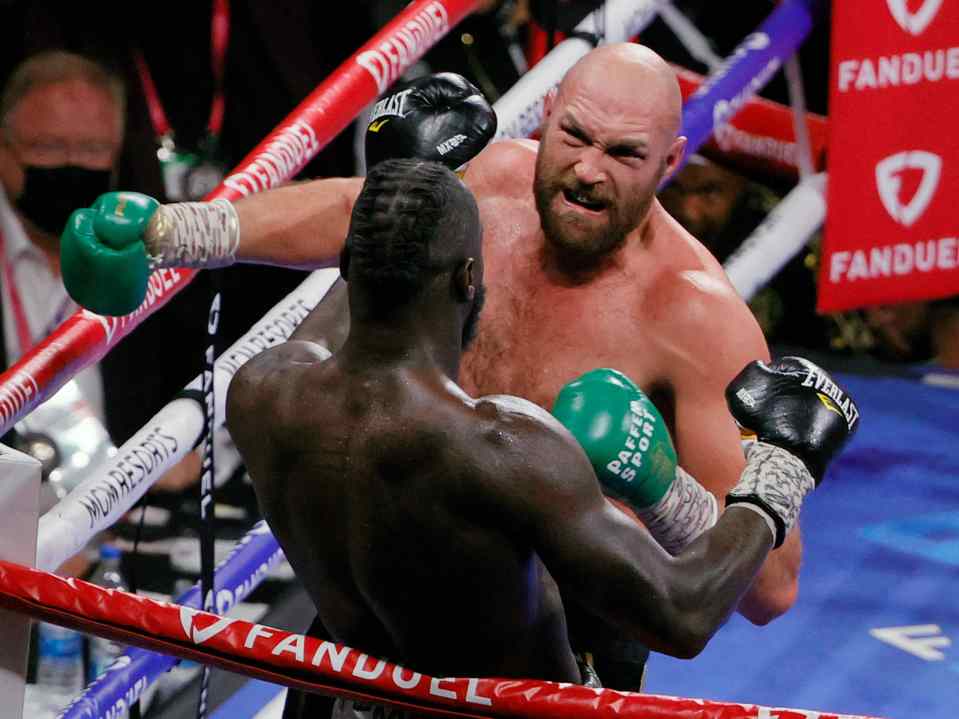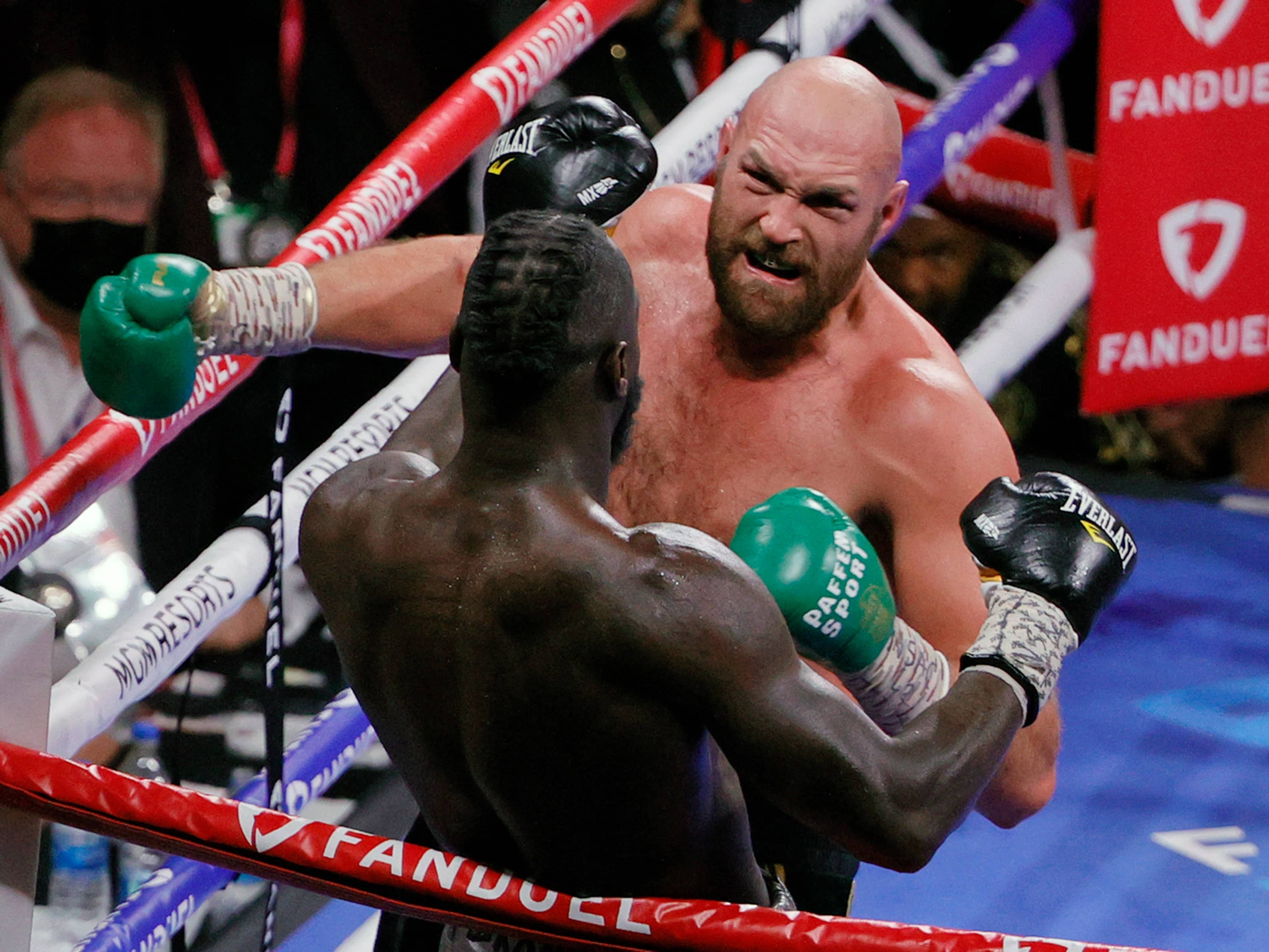As soon as he had beaten Deontay Wilder last weekend, Tyson Fury gave thanks “to my Lord and savior Jesus Christ”. He said that he was going to pray for his fallen opponent. He has said that when he was recovering from depression and mental illness he “couldn’t do it on [his] own” and got down on his knees to ask God for help:
I went down as a four hundred pound fat guy but when I got up off the floor after praying for like twenty minutes…I felt like the weight of the world was lifted off me shoulders.
Most media reports glossed over these (admittedly eccentric) expressions of Christian piety, but the clips of Fury praising Jesus for his victory went viral for good reason. Fury’s life story – his achievements, his mental health struggles and his apparent triumph over them – cannot be understood without some recognition of his faith. The secular world lacks the vocabulary to make sense of how religious belief might inform an athlete’s life and influence his performance. But we somehow know it when we see it. As C.S. Lewis said of holiness, ‘when one meets the real thing, it is irresistible.’
Of course, Christians might be nervous of making Tyson Fury a public face of their religion. In the past, Fury reportedly made crass assertions that a woman’s best place is ‘in the kitchen and on her back’; that he would hang his sister if she was promiscuous; and compared gay sex to paedophilia
It is wrong to reduce the value of religion to its potential to aid people in achieving success. There are a lot of believers and there are few Tyson Furies
A calmer Fury later apologised for saying ‘things which might have hurt some people’ and implied that he had been playing a character.
Whether he means his comments or not, we shouldn’t reduce Fury to his public outbursts. While any public figure can be judged to some extent by their opinions, a boxer’s views should have less weight than a cleric’s or a politician’s.
After all, Muhammad Ali endorsed killing people who participated in interracial relationships and called black opponents Uncle Toms. Nobody thinks this should define his legacy.
At Fury’s lowest, in 2016 – the year that he abandoned the titles he had won in his handsome triumph against Wladimir Klitschko the year before – he was using Olympian amounts of cocaine and alcohol to combat with his depression.
He ballooned up to 400 lbs. In one interview, he said that if it were not for his faith he would kill himself:
And if I could take me own life – and I wasn’t a Christian – I’d take it in a second. I just hope someone kills me before I kill me self. I’ll have to spend eternity in hell.
The history of boxing is full of champions who have sunk into a bog of mental illness and addiction. What is more rare is for a boxer to clamber out again.
Somehow, though, that is exactly what Fury did, although he would say it was thanks to the grace of God. Fury ditched the booze and drugs, shed more than a hundred pounds, and reclaimed his smile. Now, he has bested the feared Deontay Wilder twice, proving himself to be the superior athlete and, according to some, the greatest heavyweight in the world.
The indisputable fact is that Tyson Fury’s comeback is one of the most astonishing accomplishments in modern sporting history. There are more successful athletes, of course, but no one (except maybe Tiger Woods) has raised themselves so high from such miserable depths. And God, or Fury’s Christianity, has played a big part in Fury’s epic feat. As he told the Catholic Herald back in 2015, ‘Going to heaven is the most important thing a man or a woman could ever do and being right with God is the most important thing in life.’
It is wrong to reduce the value of religion to its potential to aid people in achieving success. There are a lot of believers and there are few Tyson Furies.
Still, overcoming such formidable odds as Fury has requires intense, perhaps absurd faith. Some may find it without God. Others may find it with Him. Whatever you think of Tyson Fury – or religion – that pairing of optimism and devotion is inspirational. He is a man who has been tormented. He is blessed and he knows it.







Comments